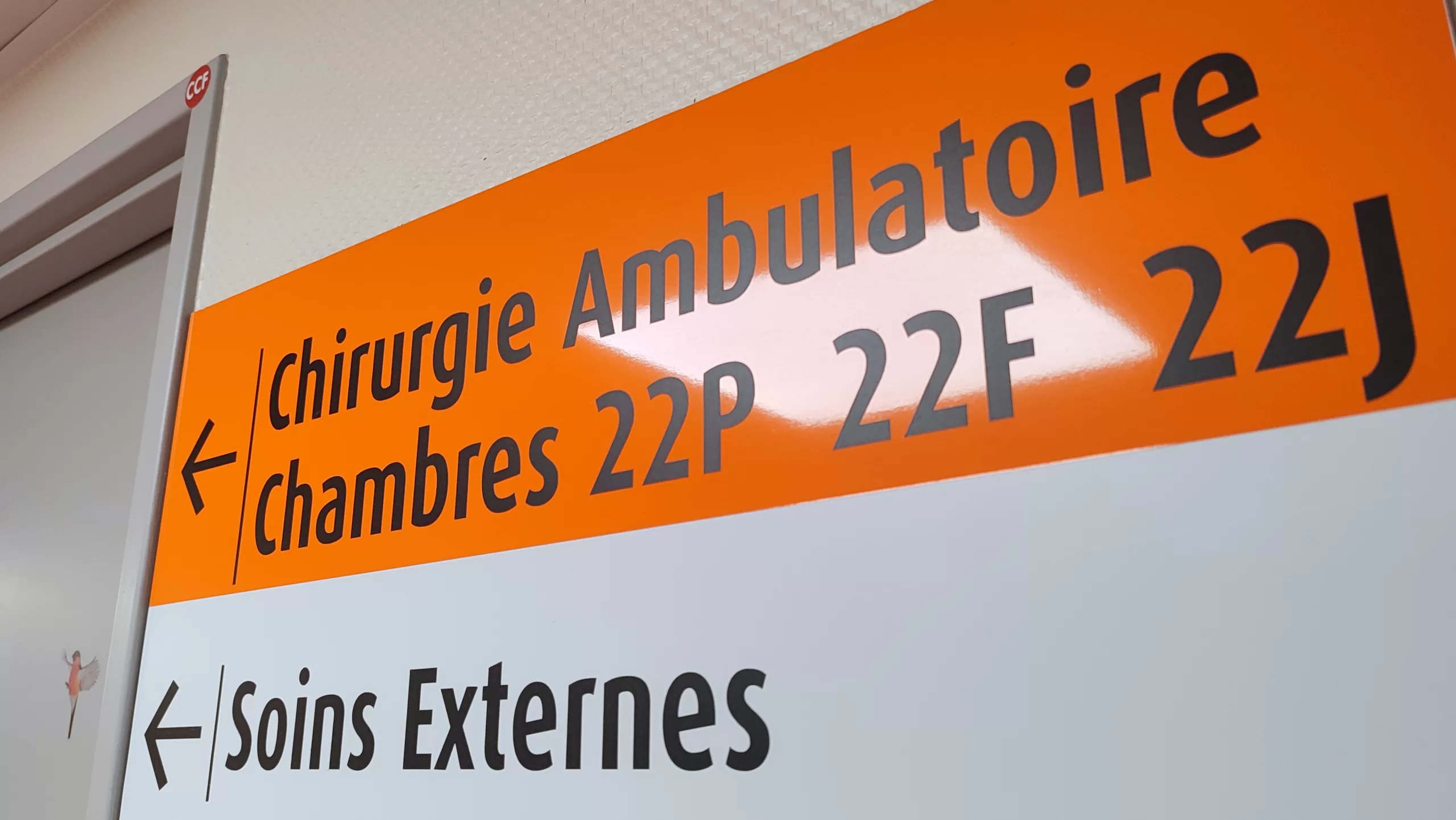The Real Test of Living Abroad
Everyone talks about the thrill of starting over—new streets, new language, new lease on life. We talk about property prices, tax advantages, and the best visas for digital nomads. We build spreadsheets for investments and spend hours comparing international schools. But almost no one talks about what happens when you get sick.
Not the quick kind of sick—something that passes with rest and a few aspirin—but the kind that lands you in an emergency room, that puts you on crutches, that forces you to reckon with the fact that you’re hundreds or even thousands of miles away from the people who would normally take care of you.
That’s the real test—not the move itself, but what happens after, when real life catches up in the quiet form of a misstep on a cobblestone street.
An Unexpected Injury in Barcelona
It didn’t happen while cliff diving in Bali or scaling a far-flung peak. I was just running—my usual morning route through the streets of Barcelona, soaking up the rhythm of the city, not thinking twice. There was no dramatic crash, no ambulance, no moment of cinematic injury. Just a faint twinge in my ankle the next day, then a sharper pain the day after that—until, a week later, I couldn’t stand. Turns out I had broken my ankle. I ended up in the emergency room, dazed, frightened, and barely able to follow what was happening around me.
Read more like this: Top 10 Things to Know if You’re Moving to Bali
The injury was bad. But the aftermath—being alone, immobilized, and completely dependent—was worse. Because in that moment, it didn’t matter that I had health insurance. What I didn’t have was a local support system. No friend to pick up groceries. No one to walk the dog or help navigate the paperwork. No familiar face to wait beside me in the hospital queue.
That’s when it hit me: we prepare for everything when we move abroad—bank accounts, legal residency, tax status—but we rarely prepare for our own fragility. And we should. Because nothing reveals the fault lines of life overseas faster than a body that stops working the way it’s meant to.

Illness Without Borders
There’s something seductive about living abroad—the soft light of a new skyline, the taste of a country’s coffee, the freedom of a fresh start. But illness doesn’t care what country you’re in. It doesn’t care how romantic your relocation story was, or how many visa stamps you’ve collected. When something goes wrong with your body, the backdrop ceases to matter. What matters is how fast you can access care, how good that care is, and how much of it you can afford.
Healthcare is not one-size-fits-all—and it’s certainly not one-country-fits-all. Every place has its own patchwork of access, cost, bureaucracy, and culture. Some nations offer near-universal care, even to non-citizens in emergencies. Others expect full payment up front. Some countries offer exceptional private hospitals for a fraction of U.S. prices, while others barely fund their public clinics.
The myth is that you’ll be fine anywhere if you’re “generally healthy.” The truth is: no one is healthy forever. And if you don’t plan ahead, you may find yourself making medical decisions based not on what’s best for your body—but on what’s cheapest or least complicated.

Read more like this: Maintaining Wellness While Living Abroad: A Guide for Expats
Public vs. Private Systems
Public healthcare is often held up as a defining feature of the more “civilized” world. And yes, in places like France, Germany, and Scandinavia, it can be exceptional. But access to it as a foreigner is often far more limited than most assume.
In many cases, emergency care will be offered regardless of nationality—but routine appointments, diagnostic tests, and follow-up treatments may be off-limits unless you’re a legal resident contributing to the national system. And even when you are, wait times can stretch for weeks, particularly in specialist fields.
Private Healthcare
Private healthcare, by contrast, tends to offer quicker access, more personalized service, and a greater likelihood of English-speaking staff. In Latin America and much of Southeast Asia, private hospitals are modern, well-equipped, and still relatively affordable. In countries like Thailand, Malaysia, Mexico, and Colombia, they’ve become the default choice for many expats.
But private doesn’t mean problem-free. Without insurance, costs can still climb quickly—and in an emergency, you may be asked to provide a guarantee of payment before being admitted. In some regions, you’ll be taken to the nearest public hospital regardless of your preference, and then have to navigate your way into the private system after the fact.
That’s why it’s not enough to know which systems exist. You have to know which ones will take you, how quickly, and under what conditions. Most countries operate a hybrid of public and private healthcare—but who gets access to what varies dramatically.
Hybrid of public and private healthcare
Europe: Countries like France, Spain, and Germany offer strong public healthcare systems, often funded through taxes or mandatory insurance contributions. In many cases, even tourists or temporary residents can access emergency services for a modest fee. However, for routine care or specialist appointments, wait times can be long—and public hospitals may operate with limited English-speaking staff.
Latin America: Mexico, Colombia, and Costa Rica have two-tier systems. Locals use public services, which are low-cost but sometimes under-resourced. Expats often opt for private clinics, which offer faster, more personalized care—still relatively affordable compared to U.S. standards.
Southeast Asia: Countries like Thailand and Malaysia are medical tourism hubs for a reason. Private hospitals are modern, English-speaking, and well-equipped. But costs vary widely—and unless you’re paying out-of-pocket, you’ll need a solid international insurance plan.
Africa and the Middle East: Access to high-quality care can be excellent in places like the UAE or South Africa, but sharply uneven in rural or low-income areas. In many regions, private hospitals are the only viable option for foreigners.
United States: If you’re a foreigner living in the U.S., prepare for the most expensive healthcare on earth. Insurance is non-negotiable—without it, even a simple ER visit can leave you bankrupt. The system is world-class in skill and technology, but access is a luxury.
The golden rule: never assume that public healthcare will cover you as a foreigner. Even within the EU, systems are tied to residency and tax status—not presence.
Read more like this: Medical Tourism in Costa Rica
We don’t talk enough about what it feels like to get hurt abroad—not just physically, but emotionally. One of the hardest parts of my injury wasn’t the emergency room or the crutches. It was everything that came after—everything that required more than medical expertise.
When you live abroad without close friends or family nearby, even minor injuries create major disruption. Suddenly, cooking becomes a challenge. Getting to the pharmacy feels impossible. And if your apartment has no elevator, a broken ankle becomes a house arrest.
This is the invisible toll of global living: the absence of a built-in support system. Back home, you don’t think twice about calling someone. Abroad, you hesitate. You might not want to burden anyone. Or you simply don’t know who to call.
I hadn’t thought about aftercare until I needed it. Not the follow-up appointments or the paperwork—but the company, the companionship, the everyday help. It’s easy to feel invincible when you’re healthy. Injury humbles you. And abroad, it isolates you.
I wish I’d put more effort into building community—saying yes to casual invites, investing in connections, creating contingency plans. Because when things go wrong, your insurance might cover the bill. But it’s your people who carry the weight.

Insurance—Your Real Safety Net
There’s a common misconception that insurance is optional if you’re healthy, or that travel insurance is “good enough.” That illusion shatters the moment you need serious care.
Travel insurance, the kind bundled with credit cards or vacation plans, is designed for short-term stays and sudden emergencies. It might cover a broken bone, but only the initial treatment. Follow-ups? Physical therapy? Mental health support? Those aren’t included. And neither is ongoing care for chronic conditions.
For anyone living abroad more than a few months, international health insurance is non-negotiable. These policies are designed for expats, not tourists. They cover everything from routine checkups and diagnostics to surgery, evacuation, and sometimes even dental or vision care. More importantly, they give you access to the better side of healthcare systems—the clinics and doctors who understand your language and needs.
But not all expat insurance is created equal. Some providers reimburse after treatment, others offer direct billing. Some exclude pre-existing conditions, others cover them after a waiting period. Prices range dramatically depending on your age, location, and coverage level. The only way to know what you’re buying is to read the fine print—thoroughly.
Because if something serious happens and your insurance says no? You’ll be paying out-of-pocket in a currency that might not be yours.
Read more like this: Travel Medical Insurance International FAQ
The National Systems You Might (Eventually) Join
In some countries, legal residents are eligible to buy into the public system—an option that can offer stability at a lower cost.
In Portugal, for example, D7 visa holders can access the SNS after registering locally. Mexico allows temporary and permanent residents to join IMSS for a modest annual fee. In Uruguay, expats can join mutualistas—nonprofit healthcare providers that function like cooperatives.
But enrollment takes time, documentation, and usually some patience. You may need to show proof of address, undergo medical exams, or meet residency duration requirements. And even then, you might still want supplementary private insurance for faster access or specialist care.
Public health access as a foreigner is never a given. And where it is available, it’s often just the beginning—not the full solution.
Chronic Conditions, Mental Health, and Long-Term Planning
For those managing ongoing health issues, the complexities multiply. Some international insurers cover pre-existing conditions. Many do not—or they charge significantly higher premiums to include them. You may find that your medication isn’t available locally, or that it goes by a different name. In some places, prescriptions are tightly controlled. In others, you can walk into a pharmacy and get what you need over the counter—until, suddenly, you can’t.
Then there’s mental health. In countries where stigma remains high or resources are scarce, accessing therapy or psychiatric care can be particularly hard. Even where it exists, language becomes a barrier. Online platforms can help, but only if your insurance covers telehealth or cross-border sessions.
These aren’t details. They’re lifelines. If you’re living abroad long-term, your health strategy needs to be as robust as your investment portfolio—flexible, comprehensive, and designed for where you are now and where you might be next.

The Worst-Case Scenario
Most people avoid thinking about evacuation. Or worse, repatriation. But accidents happen. Political instability can erupt. Rare diseases exist. And if you need to be flown to another country—or home—on a stretcher with a medical team, it won’t be cheap.
Some expat insurance policies include emergency evacuation and repatriation, but not all. Some will only take you to the nearest hospital, others to your home country. The difference matters—and so does how fast that coverage activates, and who makes the call.
It’s morbid, yes. But not planning for it won’t make it less real. If you’re living a globally mobile life, you owe it to yourself to build contingency into your sense of freedom.
Health Is the Real Passport
We plan everything else—the visas, the taxes, the business setup, the second citizenship. But we don’t plan for illness. We don’t plan for the quiet, lonely moments when the adventure pauses and all you want is to feel safe, seen, and cared for.
Breaking my ankle in Barcelona didn’t ruin my life abroad. But it changed it. It made me smarter. It made me slower, for a while, in the best way. And it made me understand just how fragile freedom can be without support.
Healthcare isn’t a detail. It’s not an asterisk at the bottom of your relocation checklist. It’s the foundation that lets you live well anywhere. Because the real test of your Plan B isn’t how fast you got out. It’s how well you’re prepared to stay—especially when your body says stop.










